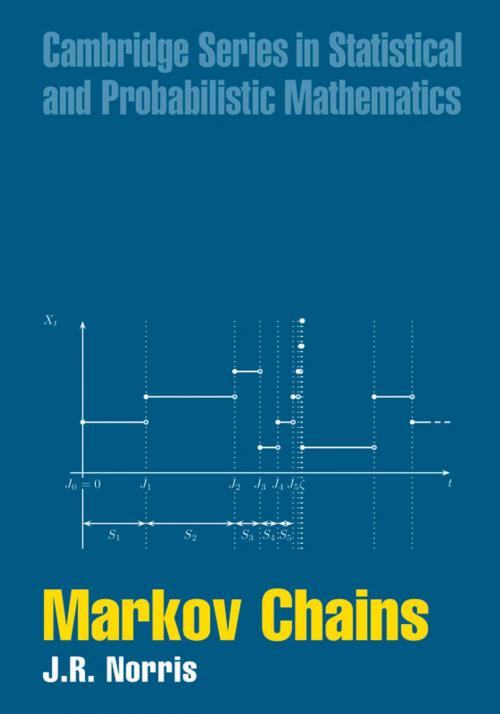| Author: | J. R. Norris | ISBN: | 9781107385085 |
| Publisher: | Cambridge University Press | Publication: | July 28, 1998 |
| Imprint: | Cambridge University Press | Language: | English |
| Author: | J. R. Norris |
| ISBN: | 9781107385085 |
| Publisher: | Cambridge University Press |
| Publication: | July 28, 1998 |
| Imprint: | Cambridge University Press |
| Language: | English |
Markov chains are central to the understanding of random processes. This is not only because they pervade the applications of random processes, but also because one can calculate explicitly many quantities of interest. This textbook, aimed at advanced undergraduate or MSc students with some background in basic probability theory, focuses on Markov chains and quickly develops a coherent and rigorous theory whilst showing also how actually to apply it. Both discrete-time and continuous-time chains are studied. A distinguishing feature is an introduction to more advanced topics such as martingales and potentials in the established context of Markov chains. There are applications to simulation, economics, optimal control, genetics, queues and many other topics, and exercises and examples drawn both from theory and practice. It will therefore be an ideal text either for elementary courses on random processes or those that are more oriented towards applications.
Markov chains are central to the understanding of random processes. This is not only because they pervade the applications of random processes, but also because one can calculate explicitly many quantities of interest. This textbook, aimed at advanced undergraduate or MSc students with some background in basic probability theory, focuses on Markov chains and quickly develops a coherent and rigorous theory whilst showing also how actually to apply it. Both discrete-time and continuous-time chains are studied. A distinguishing feature is an introduction to more advanced topics such as martingales and potentials in the established context of Markov chains. There are applications to simulation, economics, optimal control, genetics, queues and many other topics, and exercises and examples drawn both from theory and practice. It will therefore be an ideal text either for elementary courses on random processes or those that are more oriented towards applications.















